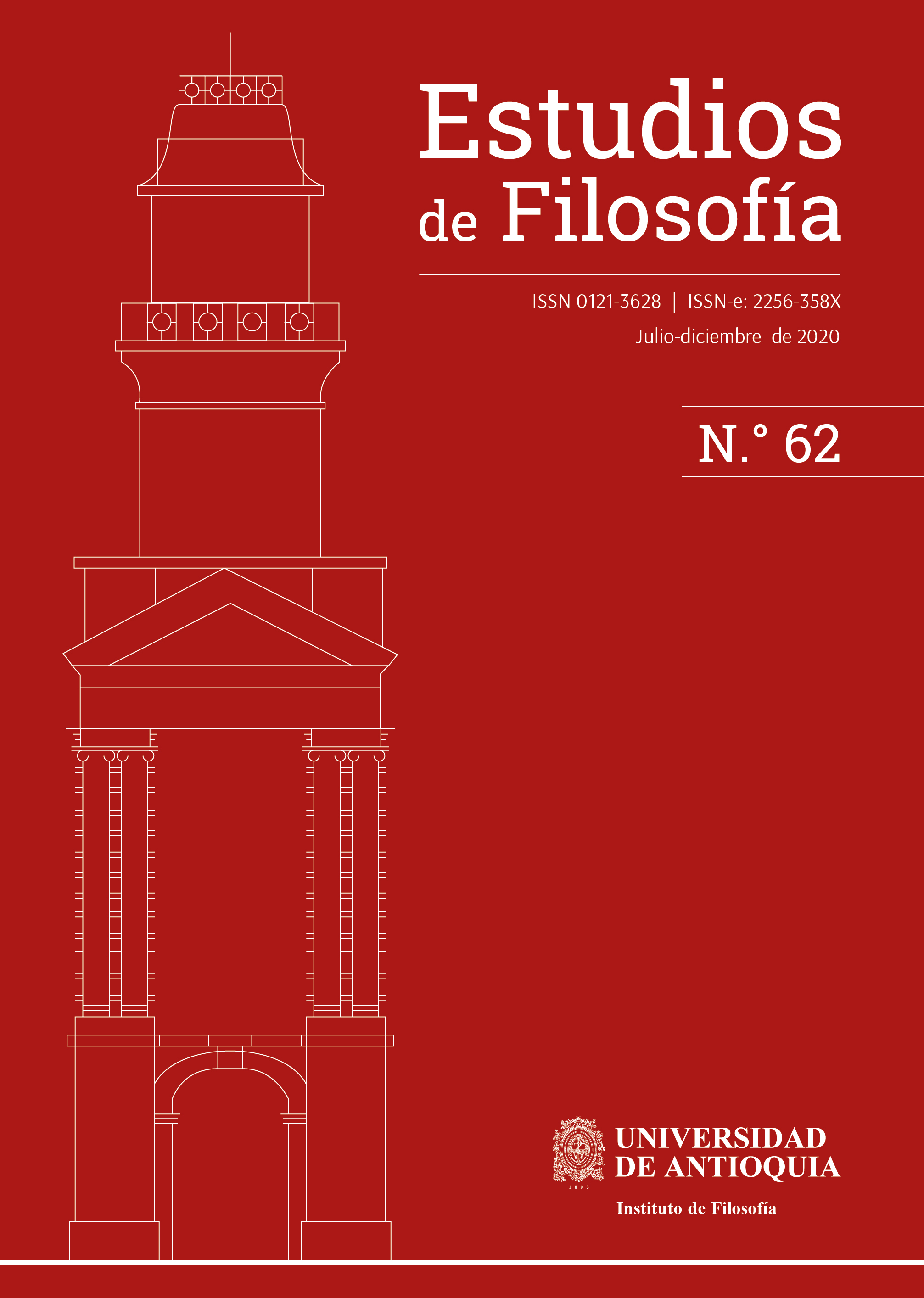The posters of May ’68 and their significance for a contemporary critique of capitalism
DOI:
https://doi.org/10.17533/udea.ef.n62a10Keywords:
may ’68 posters, marxism, situationism, Debord, 21st century, ŽižekAbstract
This essay explores the original political significance of the posters of May ’68 as a critique of capitalism, as well as extending this approach to a critique of contemporary capitalism in 2020. The slogans of ’68 are deceptively simple and we look to the importance of the political ideas expressed aesthetically as having immediate impact in the late 1960s, but also the underlying Situationist philosophy which influenced them.
We also explore the contemporary significance of Situationist theory, especially in the context of the renewal of Marxist thought in the 21st century. This renewed Leftist critique of capitalism emerges as articulated through newer social and political movements of the current times, particularly through the political philosophy of Slavoj Žižek and his auto-critique of the former Yugoslavia.
Downloads
References
Althusser, L. (1994). Ideology and Ideological State Apparatuses (Notes Towards an Investigation). In S. Žižek (Ed.), Mapping Ideology. London: Verso.
Debord, G. (1990). Comments on the Society of the Spectacle. London: Verso.
Debord, G. (2000). Society of the Spectacle. London: Rebel Press.
Freire, P. (1992). Pedagogy of Hope: Reliving Pedagogy of the Oppressed (R. Barr, Trans.). London: Continuum.
Freire, P. (1996). Pedagogy of the Oppressed. London: Continuum.
Gramsci, A. (1986). Prison Notebooks. In J. Donald & S. Hall (Eds.), Politics and Ideology: A Reader (pp. 100-111). Milton Keynes, UK: Open University Press.
Irwin, J. (2012). Paulo Freire’s Philosophy of Education: Origins, Developments, Impacts and Legacies. London/ New York: Continuum.
Irwin, J. & Motoh, H. (2014). Žižek and his contemporaries: The emergence of the Slovenian Lacan. London/New York: Bloomsbury.
Lyotard, J. F. (1993). Political Writings (B. Readings & K. P. Geiman, Trans.). Minnesota: University of Minnesota Press.
Marx, K. (1992a). The Theses on Feuerbach. In K. Marx Early Writings (R. Livingstone & G. Benton, Trans.). (pp. 421-423). London: Penguin.
Rancière, J. (2010b). Foreword to the English edition. In Althusser’s Lesson. London: Continuum.
Ross, K. (2002). May ‘68 and Its Afterlives. Chicago: University of Chicago Press. https://doi.org/10.7208/chicago/9780226728001.001.0001
Vermès, P. & Kugelberg, J. (Eds.). (2011). La beauté est dans la rue. Beauty Is In The Street. A Visual Record of the May ’68 Paris Uprising. London: Four Corners Books.
Žižek, S. (1989). The Sublime Object of Ideology. London: Verso.
Žižek, S. (1992). Enjoy Your Symptom: Jacques Lacan in Hollywood and Out (First edition). London: Routledge.
Žižek, S. (Ed.). (1994a). Mapping Ideology. London: Verso.
Žižek, S. (1994b). Introduction: The Spectre of Ideology. In Mapping Ideology (pp. 1-33). London: Verso.
Žižek, S. (2006). Lacan. London: Grant.
Žižek, S. (2008). Preface: Enjoy your Symptom – or Your Fetish? In S. Žižek (2008) Enjoy Your Symptom: Jacques Lacan in Hollywood and Out (pp. 9-16). London: Routledge.
Published
How to Cite
Issue
Section
Categories
License
Copyright (c) 2020 Jones Irwin

This work is licensed under a Creative Commons Attribution-NonCommercial-ShareAlike 4.0 International License.
Authors who publish with this journal agree to the following terms:
1. The Author retains copyright in the Work, where the term "Work" shall include all digital objects that may result in subsequent electronic publication or distribution.
2. Upon acceptance of the Work, the author shall grant to the Publisher the right of first publication of the Work.
3. The Author shall grant to the Publisher a nonexclusive perpetual right and license to publish, archive, and make accessible the Work in whole or in part in all forms of media now or hereafter known under a Creative Commons Attribution-NoCommercia-ShareAlike (CC BY-NC-SA 4.0), or its equivalent, which, for the avoidance of doubt, allows others to copy, distribute, and transmit the Work under the following conditions: (a) Attribution: Other users must attribute the Work in the manner specified by the author as indicated on the journal Web site;(b) Noncommercial: Other users (including Publisher) may not use this Work for commercial purposes;
4. The Author is able to enter into separate, additional contractual arrangements for the nonexclusive distribution of the journal's published version of the Work (e.g., post it to an institutional repository or publish it in a book), as long as there is provided in the document an acknowledgement of its initial publication in this journal;
5. Authors are permitted, and Estudios de Filosofía promotes, to post online the preprint manuscript of the Work in institutional repositories or on their Websites prior to and during the submission process, as it can lead to productive exchanges, as well as earlier and greater citation of published work (see The Effect of Open Access). Any such posting made before acceptance and publication of the Work is expected be updated upon publication to include a reference to the Estudios de Filosofía's assigned URL to the Article and its final published version in Estudios de Filosofía.















